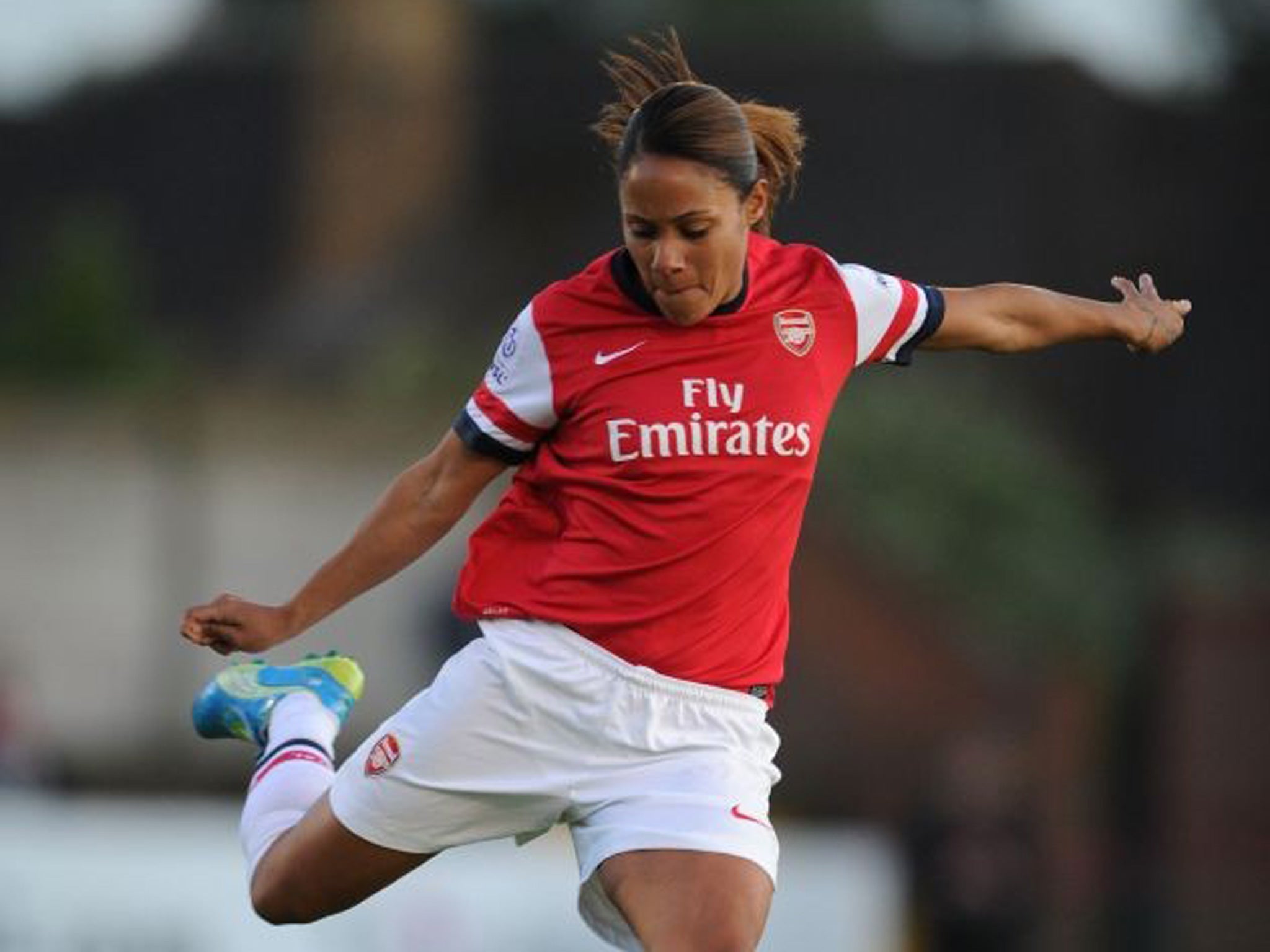Arsenal vs Everton Women's FA Cup Final preview: Old power houses struggle to keep up
Today’s FA Cup final illustrates the changing face of the women’s game

Your support helps us to tell the story
From reproductive rights to climate change to Big Tech, The Independent is on the ground when the story is developing. Whether it's investigating the financials of Elon Musk's pro-Trump PAC or producing our latest documentary, 'The A Word', which shines a light on the American women fighting for reproductive rights, we know how important it is to parse out the facts from the messaging.
At such a critical moment in US history, we need reporters on the ground. Your donation allows us to keep sending journalists to speak to both sides of the story.
The Independent is trusted by Americans across the entire political spectrum. And unlike many other quality news outlets, we choose not to lock Americans out of our reporting and analysis with paywalls. We believe quality journalism should be available to everyone, paid for by those who can afford it.
Your support makes all the difference.It is a measure of the speed of change in women’s football that today’s FA Cup final is between two of the sport’s major names, but also a meeting of the bottom two in the Women’s Super League. When Arsenal and Everton contested the final in 2010 they were the two best clubs in the women’s game, finishing first and second respectively for five successive seasons. Four matches into this season, Arsenal are bottom with one point, Everton a place and a point above them.
Last season Arsenal contested the Champions League semi-finals and won the Continental Cup (the equivalent of the League Cup) but, like Everton, they have lost players to new arrivals Manchester City. In their case it is the new England captain Steph Houghton, though the loss is partially compensated for by the recruitment of her predecessor in the role, Casey Stoney. More damaging was the departure of the 2013 women’s player of the year Kim Little to the United States.
Little scored in the 2010 final, but two goals by Natasha Dowie gave Everton victory. Dowie and fellow England player Fara Williams moved to Liverpool last year and promptly won the WSL title. International team-mates Jill Scott and Toni Duggan moved to City.
Still at Everton is England goalkeeper Rachel Finnis-Brown, who played her first FA Cup final aged 15 and, 18 years on, will be playing her fourth today. “Our league positions are a sign of how other teams have moved on since WSL started,” she said. “Manchester City, Notts County, Liverpool and Chelsea have been the benefactors of player movement. Players have been offered really good deals, not mega bucks but enough to be able to play football and not have to work as well. If I got the same opportunity I’d probably not turn it down.
“Arsenal and us are in a transitional phase but both have shown character to get to the final,” she added. “No-one can say we don’t deserve to be there.” Indeed, the potential of Everton’s impressive youth system has been evident in the Cup. Nikita Parris, a 19-year-old who came through the ranks, has scored in every round.
Finnis-Brown describes the win in 2010 as “one of the best feelings I have experienced in football”. She added: “I had a taste of it and want to do it again. I’ve been telling our young players what to expect, and to make the most of it.”
At Arsenal Alex Scott is also educating rookies. The club have won seven of the last 10 finals and the England international has played in them all. “In the past there have been several other players in the same situation,” she said. “This time half the team will be in their first final.”
She explained Arsenal’s changing status: “It shows how far the women’s game has come, other teams are investing, the best players are now spread around whereas they used to all be at Arsenal Ladies. It is now up to us to keep up. We have been reactive rather than proactive.”
Despite the loss of players like Houghton, Little, Katie Chapman and Ellen White, Arsenal’s poor start is perplexing. They still have half a dozen England players, in the Cup they have beaten Champions League semi-finalists Birmingham City and ambitious Chelsea. Kelly Smith has been dogged by injuries but has scored five goals in three Cup ties.
One casualty of their League form is the manager, Shelley Kerr, who resigned last week and leaves after the final. “The players did not want her to leave,” said Scott. “She tried to move us forward, training every day, pushing for full-time physios. It would have been nice for her to see those changes, but obviously losing matches has not helped.
“The plan is to give her a send-off by winning the FA Cup. Our Cup form has been good, though Kelly has been carrying us with her goals, so hopefully someone else can chip in.”
The FA will be keenly interested in today’s attendance at Milton Keynes. The final drew gates approaching 25,000 from 2007-9 but, despite the greater attention paid to, and investment in, the women’s game, there were less than 5,000 last year.
Alex Scott will be writing exclusively for The Independent during the World Cup
Arsenal v Everton is on BBC2 today, kick-off 4.30pm at stadiummk. Tickets: £10, concessions £5, family (2+2) £20
Join our commenting forum
Join thought-provoking conversations, follow other Independent readers and see their replies
Comments